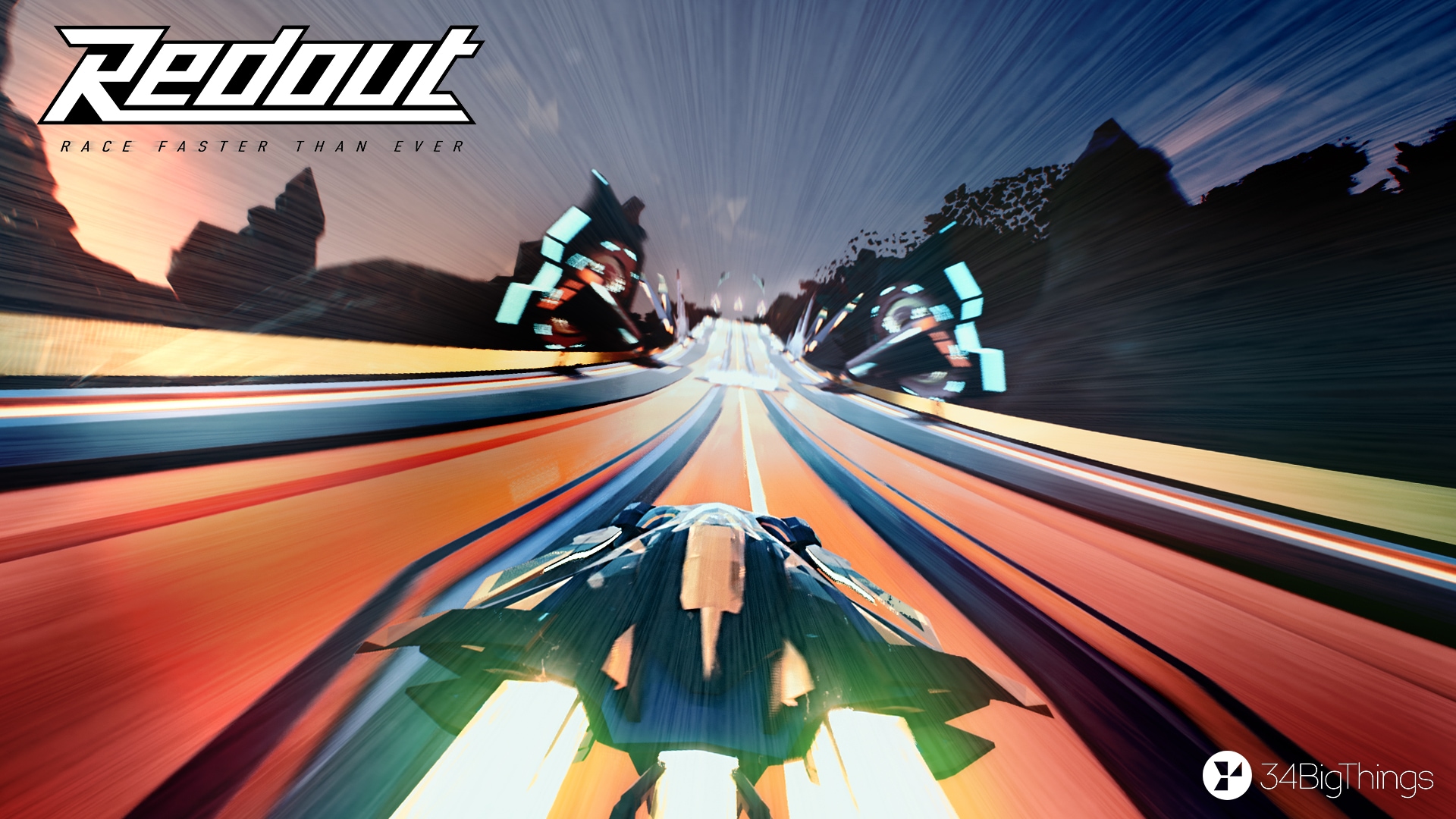Growth, new processes and the preservation of the rebellious spirit: the creators of Redout about how the first year as a member of Saber passed
In November 2020, Saber Interactive, a subsidiary of Embracer Group, acquired a 100% stake in the Italian studio 34BigThings. We contacted Valerio Di Donato, CEO of 34BigThings, to discuss the implications of the takeover for a studio that has always prided itself on its freedom and “strangeness.”
Speaker’s profile
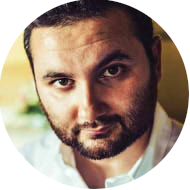
Valerio Di Donato, CEO of Studio 34BigThings.
In game development for more than 10 years. His skills cover almost the entire spectrum of game development – game design, programming, AI, PCG, 3D, 2D, shading and sound design.
Worked on games for consoles, PC and mobile devices.
He created studio 34BigThings in 2013. The first major project of the studio was a futuristic race – Redout. The studio has also created a number of small projects, such as Mars or Die, Super Ineffective Golf and Hyperdrive Massacre.
Oleg Nesterenko, editor-in-chief of Game World Observer: Valerio, tell us more about the deal. Who was its initiator?
Valerio Di Donato, CEO of Studio 34BigThings: In 2020, we were doing pretty well. We made games that we like. It may sound naive, but this is our philosophy. We have been adhering to it since its launch in 2013. Then the studio consisted of only three people who huddled in one apartment.
Since then, we have grown up a lot, launched the narrative universe of Redout, supplemented it with the prequel game Space Assault. When working on Space Assault, we collaborated with Apple, so the game was also released on Apple Arcade.
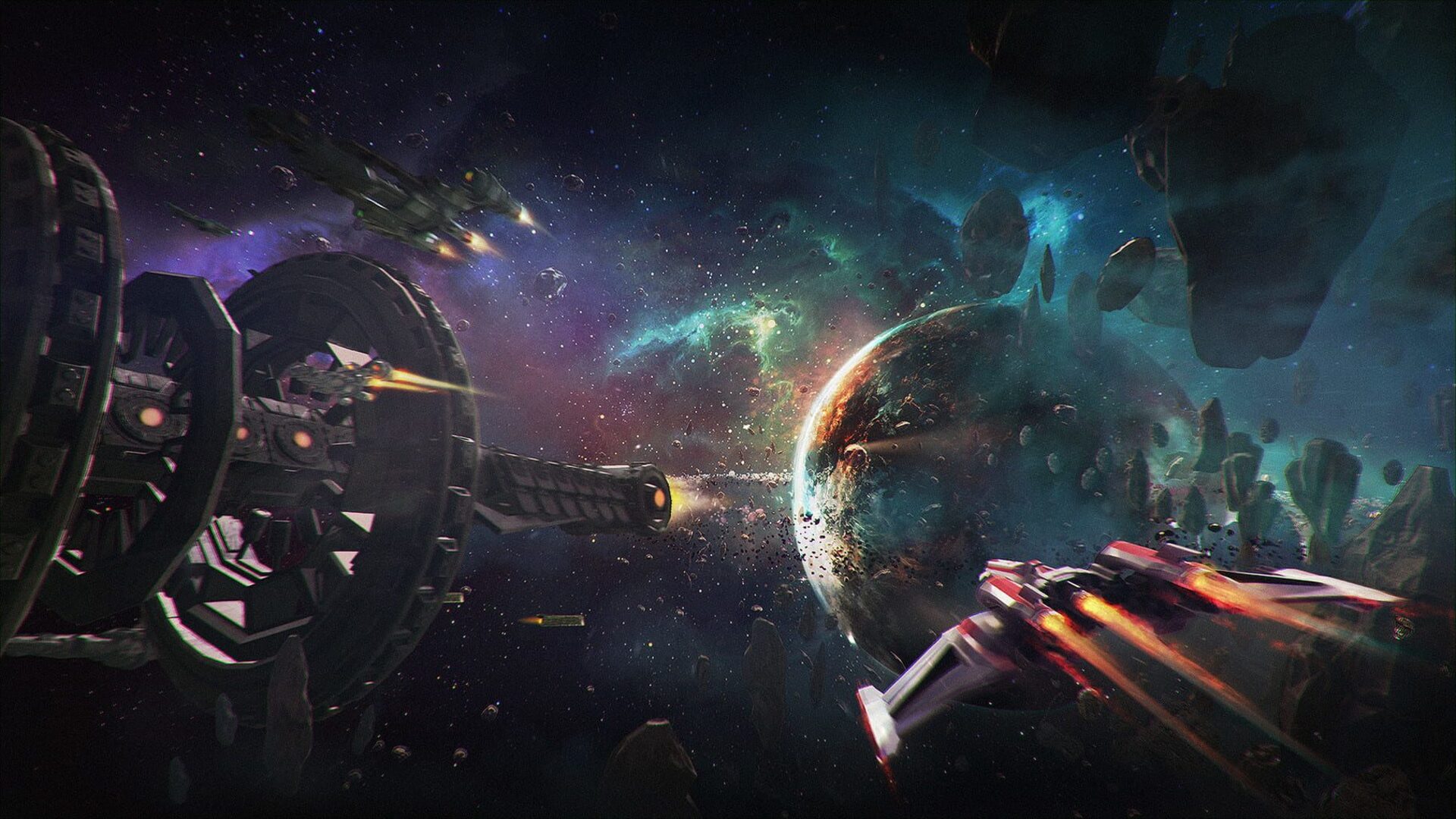
Redout: Space Assault
In general, we have done a lot of things that we have not done before. At some point, the guys from Saber contacted us and wrote that they were interested in us and our projects. “You know how to create games and how to run a business,” they wrote. “How about we discuss the release of your next game or something…?“.
“How about buying us?” we replied. Literally. It’s not that we were looking hard for a buyer, but I personally wanted to discuss this possibility. Managing a game studio is exhausting, especially in Italy. At least that’s how I felt. As an entrepreneur, I’ve always been alone. Yes, there are reliable people with whom I still work, but I had to take on all the entrepreneurial risks when it came to decision-making.
Saber promised to remove some of this emotional burden, provide additional funding and provide those deals and technologies that we could not get on our own, being indie.
We held several phone calls. We really liked that Saber representatives were honest with us, even when they criticized something. This is a fundamental point in our work.
How did the transaction process go? Have you met live?
Valerio: We haven’t seen each other in person yet. All discussions take place in the format of a video meeting in Google mit or zoom.
The first part of the Redout
As far as we know, the amount of the transaction was not disclosed. But could you tell me where the money went?
Valerio: Basically, the money from the sale went to the founders of the studio. It’s like compensation for entrepreneurial risks. But, of course, we tried to generously reward all the employees who helped the studio achieve everything and who still work for us.
And outside of the deal itself, does Saber provide additional financing?
Valerio: In general, we are self-supporting: we work at the expense of the money earned from the sale of our own products. But yes, Saber helps financially: it gives money so that we continue to increase the team. To make big games, you need a big team.
And how much have you grown since the deal?
Valerio: We have grown from about 30 to 60 people.
But is this not the limit?
Valerio: I don’t have a clear understanding of where our ceiling is yet. I would not like to lead a company of 3 thousand people. For now, at least.
In general terms, it is clear that more people are needed for our tasks. Therefore, I will say this: expansion to 70-80 people is our goal for this year. And then we’ll see.
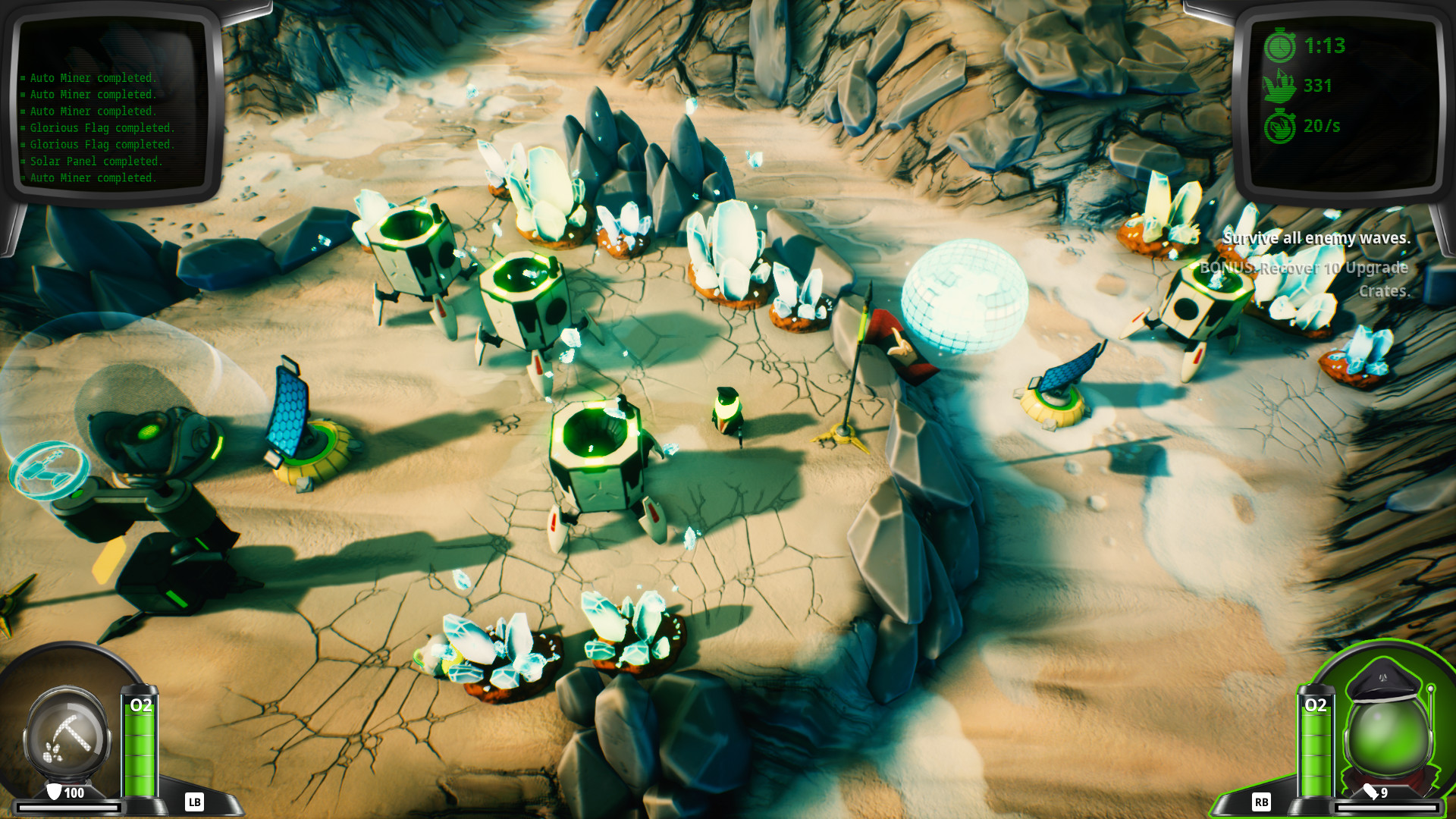
Mars or Die
Besides the number of employees, what else has changed for 34BigThings after the Saber deal?
Valerio: First of all, our strategy has changed.
Before Space Assault, we did this: we sawed some big long-term project, and in parallel we experimented, tested some ideas related to marketing or positioning on smaller games. So we created Mars or Die and Super Inefficient Golf. And there were a few casual games. So we could polish on the fly those mechanics and approaches that worked so-so.
Now the strategy is this: we are completely focused on the big games. And for experimenting and testing various marketing approaches, we have Saber.
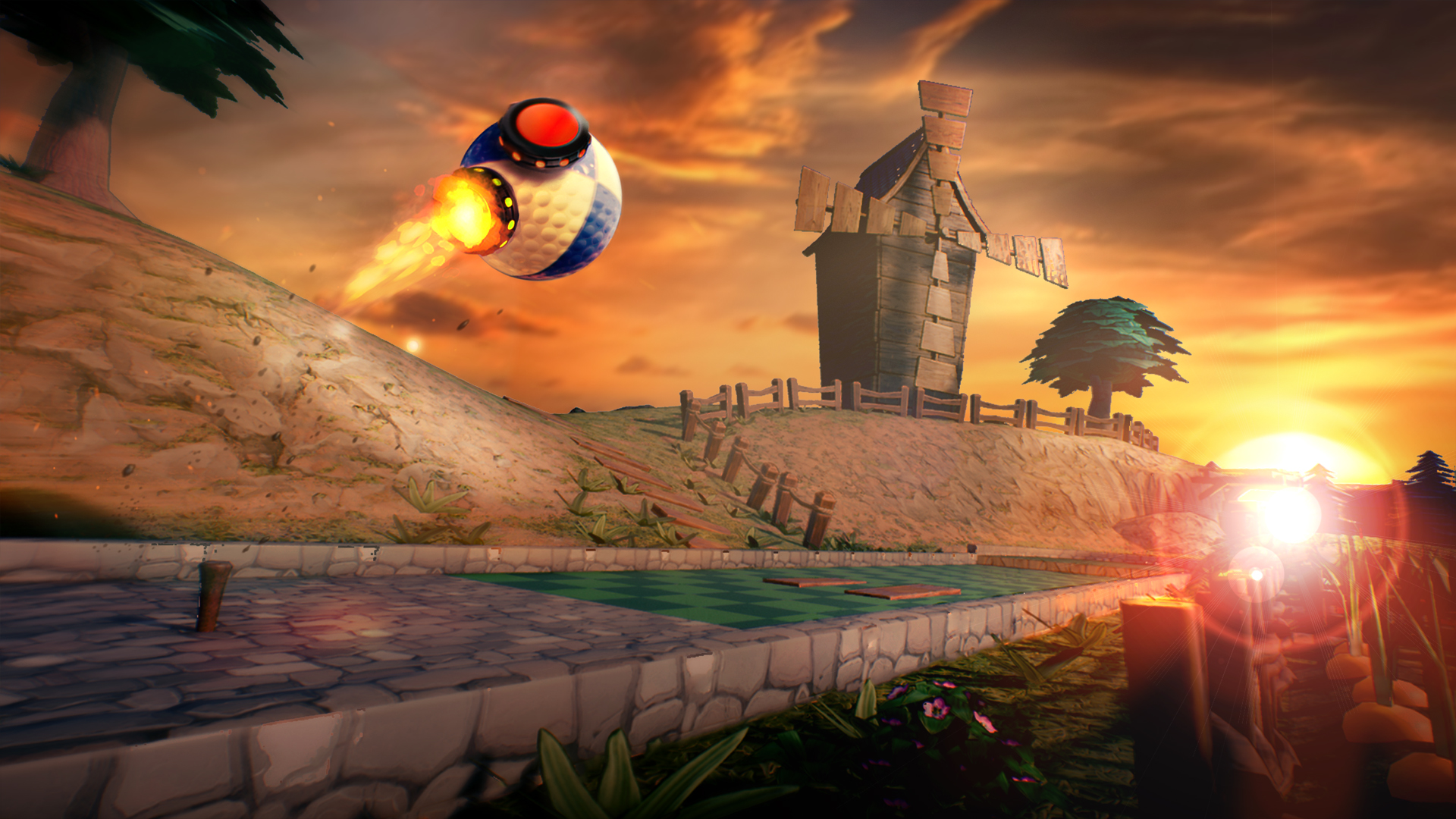 Super Inefficient Golf
Super Inefficient Golf
If we need to check something on the part of game design, then there is a pre-production stage for this. It is there that we test all new unusual ideas.
This is about strategy. In addition, our work processes have also changed. They have become more structured.
In particular, we now have two producers.
Because you are currently developing two games?
Valerio: Yes, but the number of producers is not directly related to the number of projects. We used to develop a lot more games, although we didn’t have any producers at all.
We had producers only at the late stages of work on Redout 2. Before that, we managed without them, because each member of the team was fully responsible for the product that we created. This is normal for indie.
We are still striving for the same thing, only now we have a team of 60 people under our command. That’s why producers are needed. Their number is not related to projects, but to the size of the studio.
Do your producers delve deeply into the development process? Or will they have enough interaction with leads?
Valerio: We try to keep the management as aware as possible of what the teams are doing. There are weekly meetings and weekly reports on what each employee is doing. We use all possible project management tools to understand what is happening in the team.
At the same time, producers are more focused on big tasks and overall progress. They control the observance of the milestones. So leads are responsible for the activities of employees. They decide what each employee does and how to channel his energy into an effective channel. And the producers are responsible for ensuring that everything is created smoothly, at the right time and in the right sequence.
So yes, the processes are more structured now. We are now conducting documentation more carefully.
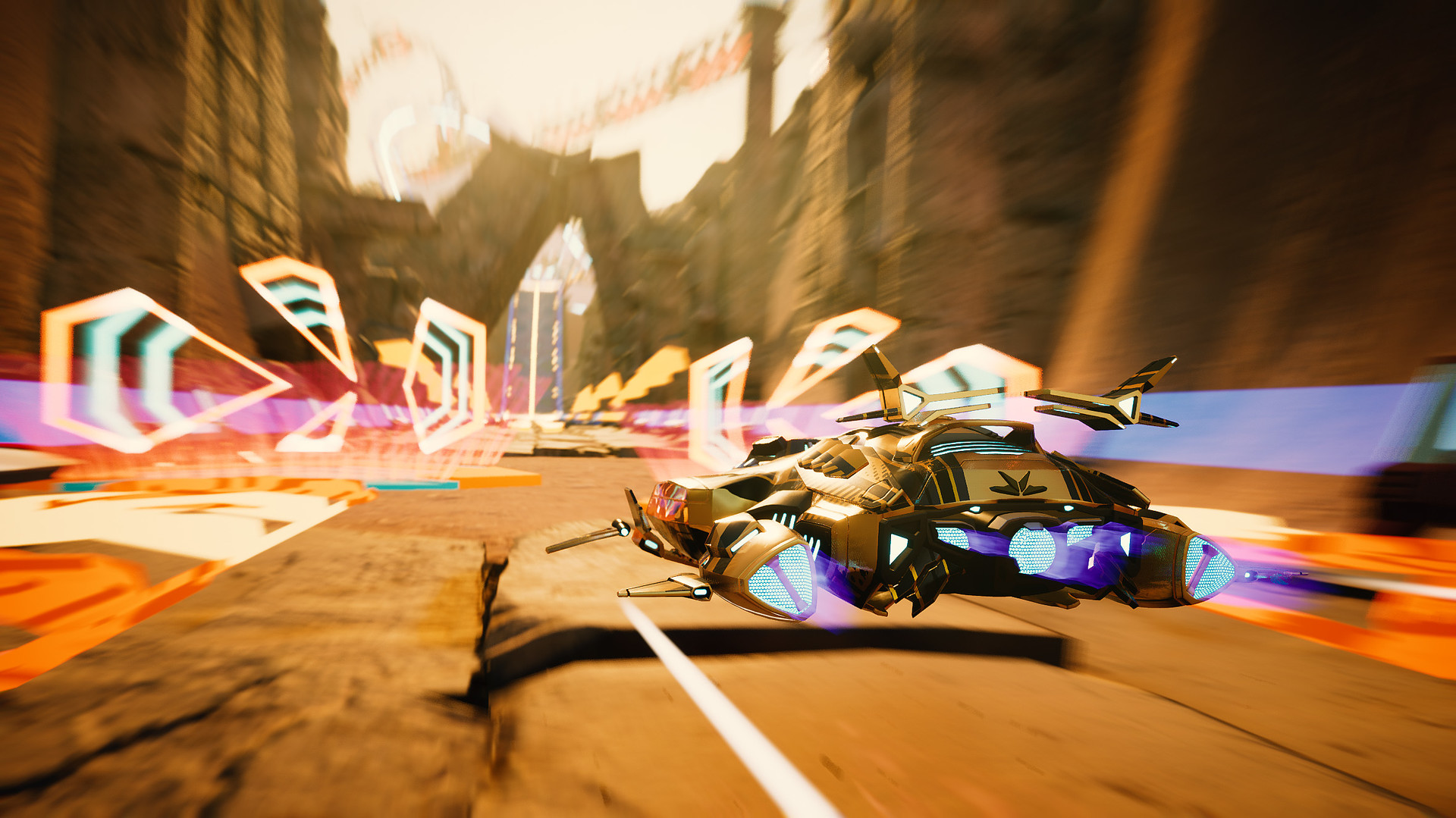
Redout 2
What about your responsibilities? Have they changed over the past year?
Valerio: Yes, but they change all the time. I am constantly experimenting with the organization of the workflow. If something doesn’t work optimally, I start doing it differently until it works the way it should.
In general, there are more meetings, because there are more people in the company, and we all do different things. Now I’m trying to get less involved in production — after all, we have two producers. Now I’m mostly focused on hiring and managing.
Are you okay with that? Do less playing and more people?
Valerio: Quite. I’m still trying to participate at least a little bit in the development. Not as thoroughly as before, of course. When we did the first part of Redout, I was the game director, I made all the prototypes and AI myself.
I didn’t work so hard on Redout 2 anymore, but I did something for the game. One of the levels there is assembled according to my vision. Basically, our creative director oversees the development of the game.
When we talked last year at DStars Connects, you were worried that the culture in the studio might change after the takeover. How are you dealing with these doubts now?
Valerio: I’m still worried. We are growing. So far, we cannot say that we have clearly screwed up somewhere or have definitely succeeded.
Everything is changing. There used to be 30 of us. We’ve been growing up side by side for the last five years. And then suddenly there were 20 new employees. There is no such level of understanding and trust with them anymore. And COVID did not help with establishing contacts, because we did not meet in the office, we communicated mainly on Discord.
That is, the difficulties that you are experiencing now – are they not related to the fact that you have joined a huge corporate body? Is it exciting just because you’re growing up?
Valerio: That’s right. Usually companies break up either in the first year of their activity or at the stage of growth. We are growing. In any case, the process seems to be going well so far.
Well, all right. Do you still consider yourself an indie?
Valerio: Absolutely! We’re still the same rebels. I’m talking about individuals and the whole company. We still have the same playful, slightly anarchic approach to work.
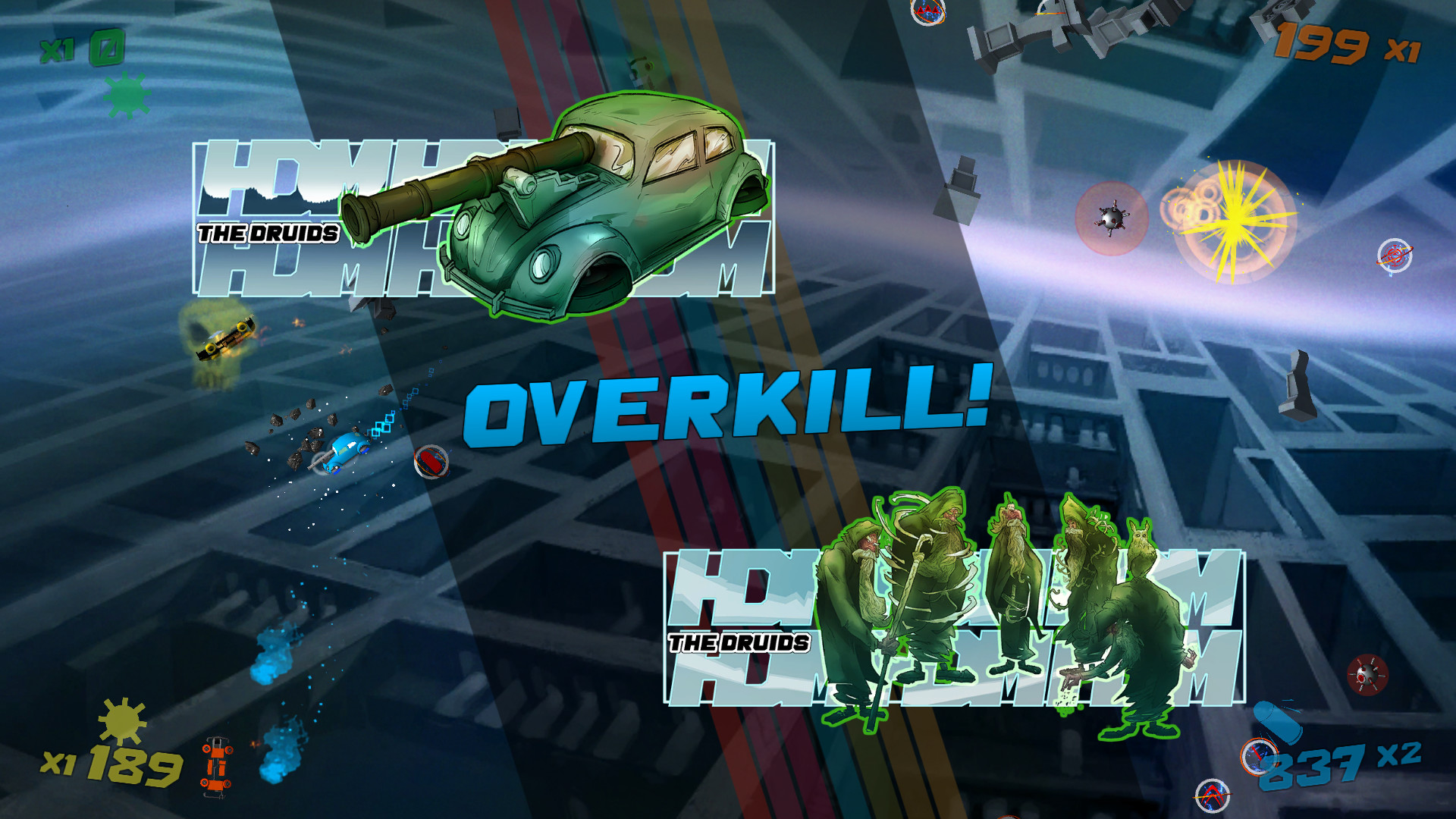
Hyperdrive Massacre
When 34BigThing consisted of three and then five people, we didn’t even have a normal website. There was literally one page with black text on a white background, where it was written: “We don’t want to waste time creating a website, so here is our address. Come in for coffee!”. And this approach is absolutely ours.
Can you give an example of how you remain faithful to this spirit?
Valerio: This manifests itself in small things. For example, we really respond to everyone who writes to us. If you have contacted us, we will definitely answer you. Even if the letter is completely off topic.
Or, if we send a test assignment to a candidate, his name will be indicated in the document.
Yes, this is done manually, but we find the time and resources to personalize the way we communicate with people as much as possible.
This is important for us, because 34BigThings are, first of all, people. We try to be friendly and open. If someone looks into the office and says, “Hi, I heard you’re making games, can I look around a little here?”, we’ll treat these people to coffee and try to answer all the questions.
And we don’t worry too much about vacations and days off. If you need time, then you need time. Take as much as you need.
In indie studios, often every member of the team is, in fact, a human orchestra. Developers can freely exchange ideas with each other, even on things that are not directly their responsibility. Do you think there is less of this creative chaos in your studio after the processes have found structure, and Saber has taken over marketing?
Valerio: Definitely not. Saber is engaged in global promotion, but the vision of the game, its aesthetics, positioning – all this is on us. We consult with them, of course, but still we know better what our game should be. So it depends on us how people perceive our game.
The same goes for the creative process. It has remained moderately chaotic, and we are glad of that. After all, games are not different in mechanics. Everything is usually standard here. All sorts of little things make games special. Compare Super Mario and Celeste. Both games are platformer runners. But the way you jump, the way you interact with the surrounding objects – that’s what makes these titles special. These things happen when game designers, composers, artists and programmers work together on each element.
We have kept this approach. At the pre-production stage, anyone can offer any idea to any department. We like to experiment – the more, the better. Later, at the production stage, we cover up this injection of new ideas a little bit, but usually we don’t really succeed. People continue to exchange ideas. We sincerely believe that games only get better from this.
If you can, please tell us about the games you are working on now?
Valerio: We announced Redout 2 in December, it will be released this year. This game is one of our biggest projects to date. We started working on it right after the release of the first part. Redout embodied 80% of what we wanted to see in the game. It is impossible to get 80%, 100%. But Redout 2 is much larger, it has more ships, customization options, levels. It turned out to be much larger than the first part.
And this is thanks to the Saber deal?
Valerio: I think the amount of content itself would be about the same without Saber. But thanks to them, we have additional months to develop, so the overall quality will be much higher.
And what about another unannounced title?
Valerio: He’s in pre-production right now. This game embodies our studio DNA. That’s what I went into this industry for in the first place. That’s all I can say at the moment.
So 34BigThings is the same company, only bigger?
Valerio: Yes, everything is also fun here.
With which I congratulate you. Thank you for the interview and grow big!
